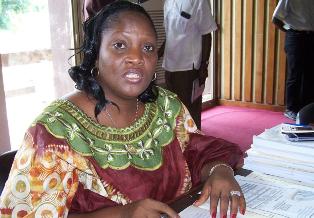Government’s NGO Policy: Preaching ‘Equity with Clean Hands’
In her Annual Message to the Joint Session of the 53rd Liberian Legislature on Monday, January 26, 2015, President Ellen Johnson-Sirleaf reiterated her mandate for all Non-Government Organizations or NGOs operating in the country to make financial reports of their activities.
Among a number of policy measures announced in her State of the nation Address in 2014, President Sirleaf, for the first time, declared that all NGOs operating in Liberia make reports on their activities as a way of strengthening them for proper transparency and accountability of resources received and results produced, under a compliance and regulatory environment.
“This process will enable NGOs to properly account for their operations at the local level where they work, allowing local government to have real time information on what NGOs are doing and where,” the President reiterated in her 2015 State of the Nation Address delivered to the Legislature, emphasizing: “This is consistent with our new drive to de-concentrate and decentralize the delivery of services and to foster greater accountability to local government and citizens structures by the NGOs operating at the local level.”
Apparently, this new policy may seem to be raising some eyebrows within the NGO community in Liberia.
And barely 24 days following the Address, the Liberia NGO Network or LINNK, through its leadership, questioned the new policy on grounds that the government has reneged on enacting laws to protect national NGOs, arguing that it has, over the years, failed to provide budgetary allotments as subsidy to buttress NGOs’ efforts.
LINNK’s leadership, at a ceremony of its inaugural celebrations of its 3rd national coordination body held in Monrovia on Friday, January 30, 2015, described the government’s mandate to demand financial reports from NGOs as unfair.
“It is inconceivable to reap what you have not sown; in the face of government’s unwilling to enact laws to protect national NGOs on one hand, and the lack of budgetary allotments as subsidy to buttress the efforts of these NGOs, the government was demanding financial reports from these NGOs,” The LINNK’s Leadership further argued.
[bsa_pro_ad_space id=1]
While we share the concern of local Non-Governmental Organizations, they must also understand that “he who preaches equity must also come with clean hands.” It is no secret that local NGOs in Liberia have been and continue to highlight in their advocacies/activities the issue of transparency and accountability in the operations of the Liberian Government.
And if the government must be transparent and accountable to the people, why must NGOs not be transparent and accountable to the people of Liberia, on whose behalf they solicit funds from international donors? Why, in fact, must the Government of Liberia ensure budgetary allotments as subsidy to NGOs when they receive international funds to buttress the government’s efforts? Will annual budgetary allotments not compromise their advocacies and humanitarian services? These are, but a few questions that the Liberia NGOs Network must ask itself, while questioning the issue of making financial reports of their activities across Liberia.
In all fairness, the need for Liberians to understand what these NGOs are doing throughout the country and their impact on the socio-economic well-being of the people of Liberia on whose behalf they solicit these funds, cannot be over-emphasized.
We think all local NGOs operating in the country must be transparent and accountable to the people the service just as the government because they all deal with public resources one way or the other.




















